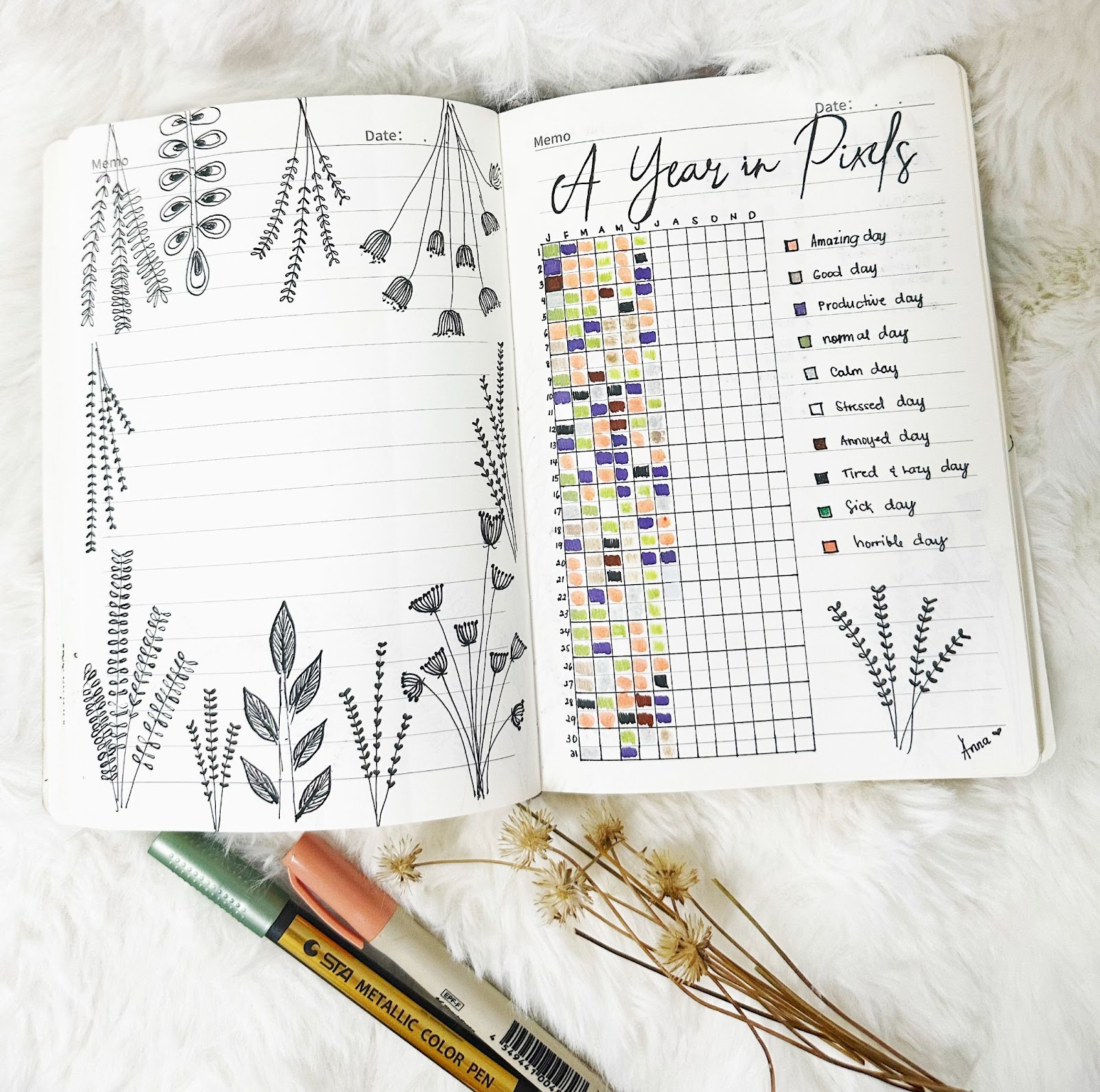
Ever felt overwhelmed but didn’t know how to process your thoughts? Journaling might be the answer! While there are many ways to deal with emotions, journaling is an amazing way to externalize your emotions.
Writing has always been a safe space for me. I’ve been writing since I was in elementary school, getting lost in the stories I’d create in my head. My dream was always to be an author, to have my work published. I still tear up a little when I see my work pop up since I know past me would be proud.
Writing is an outlet. It doesn’t matter what kind of writing you do-fiction, nonfiction, stories, poetry-they help you channel your emotions into something creative. Writing isn’t about whether you are good at it or not but giving your feelings a place to go.
Mental health journaling has been growing in popularity recently. It’s simple: You just write down what you are feeling at any given time. Journaling has been popular for a long time. Many find comfort in writing out what happened during their day. Other people get lost in exploring the oceans of their emotions, navigating the depths of their souls.
When you get lost in writing, you often unconsciously put down feelings you may not even know you had. The ability to articulate what you are thinking is a sign of personal growth. It takes an incredible amount of self-reflection to realize and acknowledge your feelings.
What is Journaling?
I still remember how upset I was when someone read my journal at school when I was younger. The reason I got so sad is because of how personal the journal had been. I hadn’t necessarily written anything “bad” in it, but I’d poured out the thoughts I’d never share with anyone into this little book.
We will talk about some of the different types today, but the important thing is realizing how a journal can become an extension of you. It can be scary to put down your deepest thoughts on paper. It can make it seem more real. However, remember that journaling is done with intention. It is a way to reduce stress and grow emotionally. As you journal, keep this why in your mind.
Journaling doesn’t have to be done a certain way, but the more you journal with intention, the better effect it has. Journaling is not one size fits all. To create something personal, you must personalize it. No matter what type of journaling you choose, make sure it is helping you. It might take some exploration to find out which method works best for you but trust me when I say that journey is worth taking.
The Science Behind Mental Health Journaling
Because of how simple it is, I often forget how medically helpful the practice can be on mental health. I recently read this study showing how journaling can be a useful tool when combatting depression. A study from Cambridge University also found that journaling can reduce symptoms of anxiety and PTSD.
- It is important to note that journaling should not be used as a replacement for therapy or psychiatric treatment if prescribed. It can rather be used to manage general stress or as a supplement to treatment.
Journaling, and other writing activities, engages the prefrontal cortex of the brain. This part of the brain is responsible for emotional regulation and decision-making. Journaling can bring you mental clarity, helping you function better in your daily life tonight.
The Benefits of Mental Health Journaling

My friends and I started a journaling challenge our senior year of high school. The stress of applying to college and essentially figuring out the rest of our lives was difficult. We wanted to make time for ourselves, and we would hold journaling sessions as an after-school activity. I love the sheer amount of benefits mental health journaling has. Everyone has differences with journalists, and my friends and I saw the different ways this habit improved our lives. Some of these benefits were noticed by ourselves while we noticed others in each other. A lot of us (including me!) continued journaling in college because we loved the benefits.
Here are a few things we noticed:
1. Enhanced Self-Awareness and Emotional Intelligence – This was more of a hindsight realization. When you’re in the college application process, everything seems like an end all be all. A simple click of a button can be life-changing. I genuinely think that journaling helped me see the bigger picture. Even if not everything worked out the way I thought it would, I was able to keep faith that things would eventually fall into place.
2. Reduces Stress and Anxiety – This was a huge difference. There was something putting our feelings into words that made them seem lighter. Maybe it’s because we were able to see our emotions from an “outsider” perspective of reading what we wrote. Maybe we just needed to talk it out, and the journal couldn’t judge. Either way, it helped reduce our stress levels by a lot.
3. Boosts Emotional Resilience – Emotional resilience is a finicky term since too much resilience can close you off. However, I like to think of emotional resilience as a rubber band. When things stretch you too far, are you able to bounce back? This is a bit ironic, but having a place where you think about the worst case scenarios can increase your resilience. It gets you used to the idea that the worst thing that could happen may not even be that bad, encouraging you to take risks. It also helps you process the losses. Losing can very much feel like going through grief, and having a place to process that can bring you to acceptance, helping you move on strong.
4. Encourages Gratitude and Positive Thinking – I know I just talked about looking at the worst through a journal, but looking at the best things in life can help you live in the present. Anxiety is often future based. I couldn’t enjoy the moment because my mind would race about things I thought could ruin the good. By writing down the things I was grateful for and focusing on the positive aspects of the now, I trained myself to live in the present.
5. Improves Sleep and Overall Mental Clarity – Journaling before bed hits different. It helped me reflect on the day, and I found things I wanted to keep doing and things I wanted to change. It also helped to get everything out right before I slept. Like they say, never go to bed angry. Writing out my day helped me let go of any resentment I was holding in.

How to do Mental Health Journaling?
- Choosing the Right Journal Format – You don’t have to stick with one type of journaling. In fact, I highly recommend switching it up every now and then just to freshen your brain when you’re feeling unmotivated. However, finding a method that works for you can bring comfort. Explore different methods and listen to how you’re feeling on a day to day basis.
- Setting Up a Journaling Routine
- When and how often to write
- I’m not a huge fan of routine, but having a journaling routine helped me keep going with it. Like I mentioned before, I kept a diary when I was very young, but I’d fallen out of that habit in middle school and early high school. Meeting up with people helped me keep up with journaling. I don’t journal everyday anymore, but I try to do it about once a week. I will usually end up doing it more though. I often write at night since I have more time. However, I know a lot of people love journaling in the morning. The most important thing is to have time without tasks imposing on you.
- Creating a safe and comfortable space for journaling
- I’m the type of person who will journal any time, anywhere. I usually do this over my phone, and I’ll start typing away. However, when I really want to concentrate on journaling, I have a pink saucer chair and a cozy blanket in my room I’ll curl up in. I’ll light a candle, turn on my fairy lights, and journal over some chamomile tea. Creating an environment where you can focus on your writing can encourage you to journal. It can also make you feel safer, helping you get out your emotions without inhibitions. However, don’t put too much pressure on the environment. Write when you feel motivated and make your environment inspire you. However, don’t limit yourself to only writing when you’re in your environment.
- When and how often to write
- Overcoming Writer’s Block
- Tips to start writing even when you don’t know what to say
- Write. I know that is oxymoronic advice, but just write. Write down your grocery list. Maybe what you did that day. You don’t have to make prolific pieces in your journal. The more you write, about anything, the better you’ll become.
- You can also try some writing prompts and exercises. One of my favorite ones is focusing on the first thing you see and describing every little thing about it. Set a timer for ten minutes and write about this one item for the entire time. You may find yourself attaching stories to these items. By the end of it, you’ll notice you have a more emotional piece than you may have realized.
- Tips to start writing even when you don’t know what to say
SUBSCRIBE TO GET YOUR FREE MENTAL HEALTH PLANNER TODAY!

RELATED ARTICLE: Self-Care Tips for Mental Health: Daily Habits to Nurture Your Mind and Well-Being

What are the different forms of Journaling?
- Gratitude Journaling – Gratitude journaling is a way to live in the present. It focuses on the good in life. When dealing with difficult mental health, the future can consume your mind. It can be hard to remember the good of the now. You can practice gratitude journaling by listing some of the things you are thankful for once a day, or describing a good thing in your life in depth. Remember, this method focuses on positivity. While other types of journaling includes writing out some of the good and bad emotions you have, gratitude journaling is meant to uplift your spirit by acknowledging your joys.
- Stream-of-Consciousness Writing – This one is my personal favorite. There are no rules, you just sit down and write. Stream-of-consciousness is great for exploring emotions through writing sprints. Set a 30 minute timer and write down everything that pops into your mind. At some point, you have no choice but to get lost in your writing, and you’ll feel the emotion flowing out onto your page. I will say that this one is probably the most prone to writer’s block, but it goes away the more you do it.
- Prompt-Based Journaling – Prompt based journaling is one the best ways to combat writer’s block. Whenever I’m feeling stuck, I like to find a writing prompt to get me started. Writing prompts are also good for creating intention in your journaling. Unlike stream of consciousness writing, prompt-based gives you something specific to focus on. Depending on the day, I feel like this is more “effective” journaling for me since it forces me to use journaling as a tool to improve mental health.
- Mood Tracking & Reflection – Mood tracking is recommended by many mental health promotionals since it allows you to recognize patterns in your thinking. You can also reflect on what caused shifts in moods and how you can improve emotional regulation. I love using apps on my phone to track my mood. This is very convenient to keep up with throughout the day. I then complete a more in depth reflection at the end of the day whenever I feel the need to expand on my feelings.
Cognitive Behavioral Therapy (CBT) Journaling (Restructuring negative thoughts) – CBT is a form of psychology where one tracks their thoughts to identify negative thinking patterns. This helps you recognize your thinking patterns and restructure your behavior.

Example Prompts for Mental Health
If you are looking for journaling prompts to start off with, here are some ideas! I love how these prompts can guide your journaling to help you find yourself. While these prompts provide structure, feel free to get creative with them.
- Self-Discovery and Reflection Prompts
- “What are my biggest strengths?”
- “What challenges have shaped me the most?”
- Emotional Processing Prompts
- “What emotions am I feeling right now, and why?”
- “How do I typically respond to stress, and how can I improve?”
- Future-Oriented Prompts
- “Where do I see myself in five years?”
- “What are three small steps I can take toward my goals?”
How to Stay Consistent with Journaling
- Setting reminders and making journaling a habit
- When I was starting off with journaling, it was hard to stay consistent. I would always find something “more important” to do and had to set aside time in my calendar to write. I love spontaneously journaling, but I truly believe I get the motivation to do that now because I worked to stay consistent before. Journaling is a skill that gets better over time. Try journaling at different times of the day in different places until you find what works for you. Once you get in the groove of it, you can choose to continue with your routine or try to do it whenever you are drawn to it.
- Experimenting with different techniques to keep it engaging
- Try some of the different journaling techniques you’ve read about today. Don’t restrict yourself to one type of journaling. In fact, this can get you stuck in an echochamber of your own creation. I love changing up my journaling style whenever journaling becomes too comfortable. Don’t get me wrong, journaling should feel comfortable. However, it should also challenge you and increase self-awareness. I was definitely better at trying different journaling methods while I was a part of my journaling group. Consider doing journaling challenges with your friends, or even letting more writing prompts influence your entries.
- Avoiding self-judgment—there’s no right or wrong way to journal
- Journaling is supposed to be fun! It shouldn’t be another source of stress. For some people, structured journaling is a better fit while others prefer free writing. Journaling is a safe space. There are no mistakes. Don’t take it too seriously, just enjoy the process.
Final Thoughts
Start journaling today! Remember, you don’t need fancy supplies or anything. Open up your phone’s note taking app or grab a piece of paper and start writing. Journaling helps with self-reflection, which leads to personal growth and healing. I know things may seem overwhelming right now, but you’ve got this. I hope journaling is as useful of a tool for you as it has been for me.
Share your journaling experiences in the comments below!
Plugin designed by RofiTech


Leave a Reply